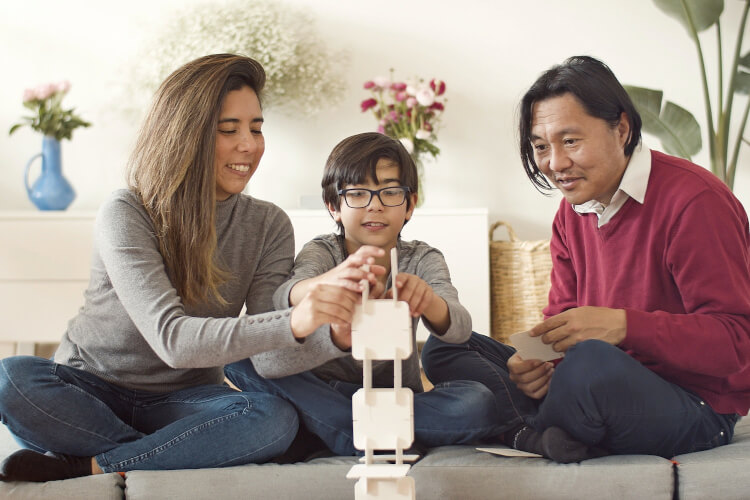
Several different types of therapy can help families in need. The goal of family therapy is often to:
- Improve communication
- Solve problems together
- Learn how to express feelings/emotions
- Manage anger
Family therapy also helps different members within the family to develop coping skills. Many aspects of it are similar to individual therapy. There are a few key differences, though—especially when it comes to Family Experiential Therapy (EFT).
EFT is often more engaging for families than other traditional forms. It can involve anything from playing games to creating art together. What are the benefits of EFT and family therapy, in general?
1. Improves Communication
You’ve probably heard before that communication is the key to a successful relationship. That doesn’t just mean a romantic relationship. Strong communication throughout a family unit is crucial.
Family therapy can help you learn to communicate better as a family. It does this by first identifying the different communication styles everyone has. If someone has experienced a traumatic event, an addiction, etc., the techniques of EFT can also help everyone to feel more comfortable with each other. Mostly, in part, to the more relaxed and “fun” environment that it creates.
2. Opens Up Emotions
One of the most significant benefits of family therapy is that it provides a safe environment for family members to open up freely with one another. Using EFT, things like role-playing, acting, or guided imagery can make it more natural for members to express themselves. This approach gives complicated feelings or thoughts a chance to surface.
Because family therapy allows you to dive deeper into emotions, it can also improve the empathy that members of your family have for one another.
As a result, you can establish healthy boundaries and healthier patterns within your family unit. This impact is especially helpful when negative emotions arise as a result of something problematic that you or another family member are doing.
3. Brings the Family Together
Experiential therapy is often used to help people who might be recovering from addiction, trauma, or some grief or loss.
When a family member is faced with any of those issues, it can drive a wedge between the whole unit. Family therapy can help you all to work through those issues and how to handle them healthily and productively. Over time, this helps to strengthen the bond of your family by learning problem-solving skills together that you can use forever.
4. Encourages Forgiveness and Builds Trust
Families seeking out therapy often have a reason for their disconnect. Again, therapy provides an open space to get all of those issues out in the open. Once everything is uncovered, it can become easier to forgive one another.
That forgiveness can be the starting point. It can help you work toward rebuilding trust and letting go of the unhappy experiences of the past. Instead, it allows you to focus on the present and the future by resolving internal conflicts between family members.
5. Creates a Better Family Dynamic
Overall, family therapy is an excellent resource for improving your family dynamic. You don’t have to wait for things to feel as though they’re “falling apart” to reap the benefits.
If your family, or individual members, have been having a hard time connecting or there is discord within your family unit, therapy can provide a safe and secure environment that might make a big difference. Sometimes, all it takes is the right resources, skills, and encouragement to be able to open up to one another and work things out in a healthier way.
—
If you’re interested in learning more about family therapy or how it might benefit you, feel free to contact me. You don’t have to worry about whatever inner turmoil your family is facing for a lifetime. Many times, things can get worked out, and your close family unit can be restored, using the right techniques.
